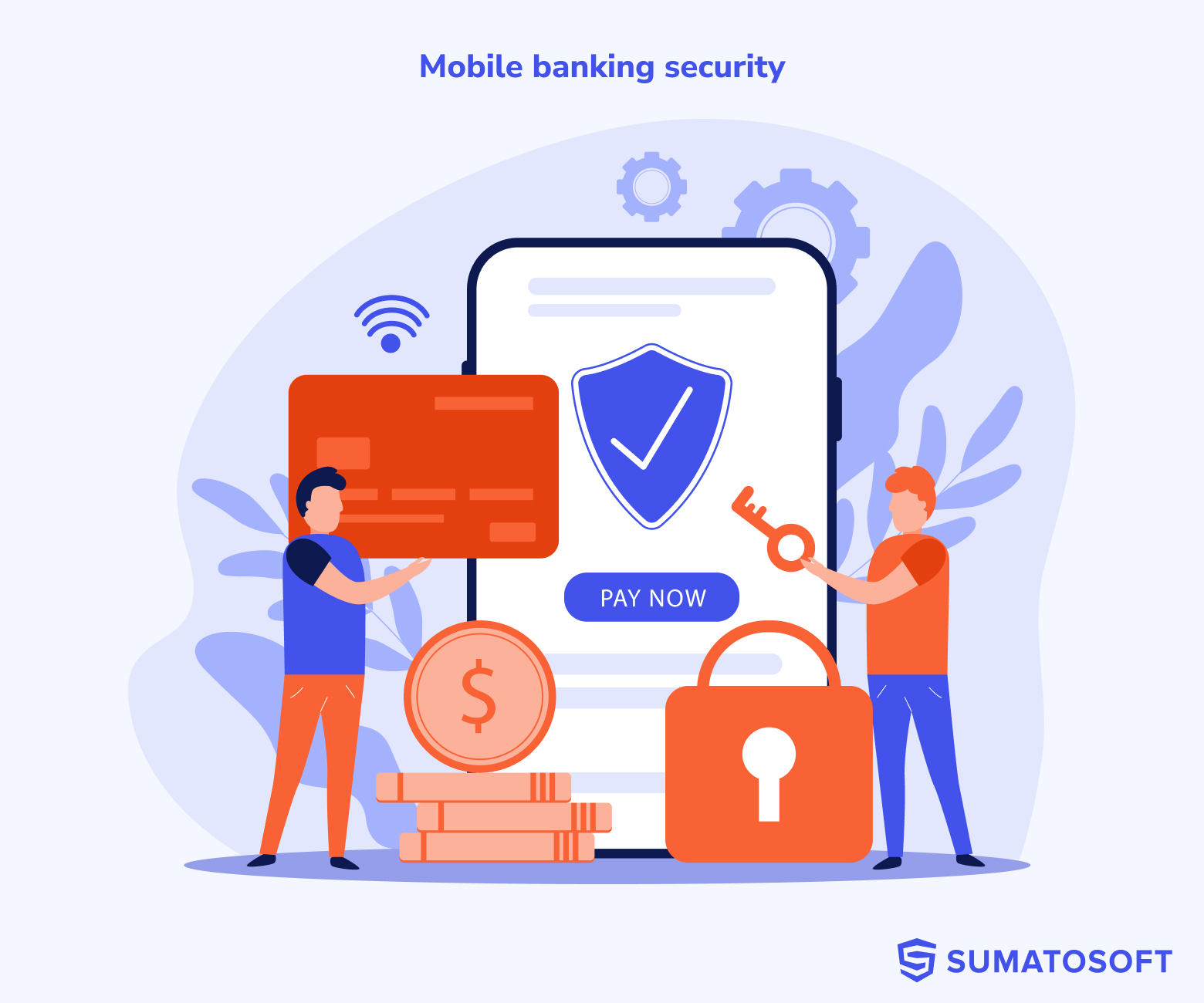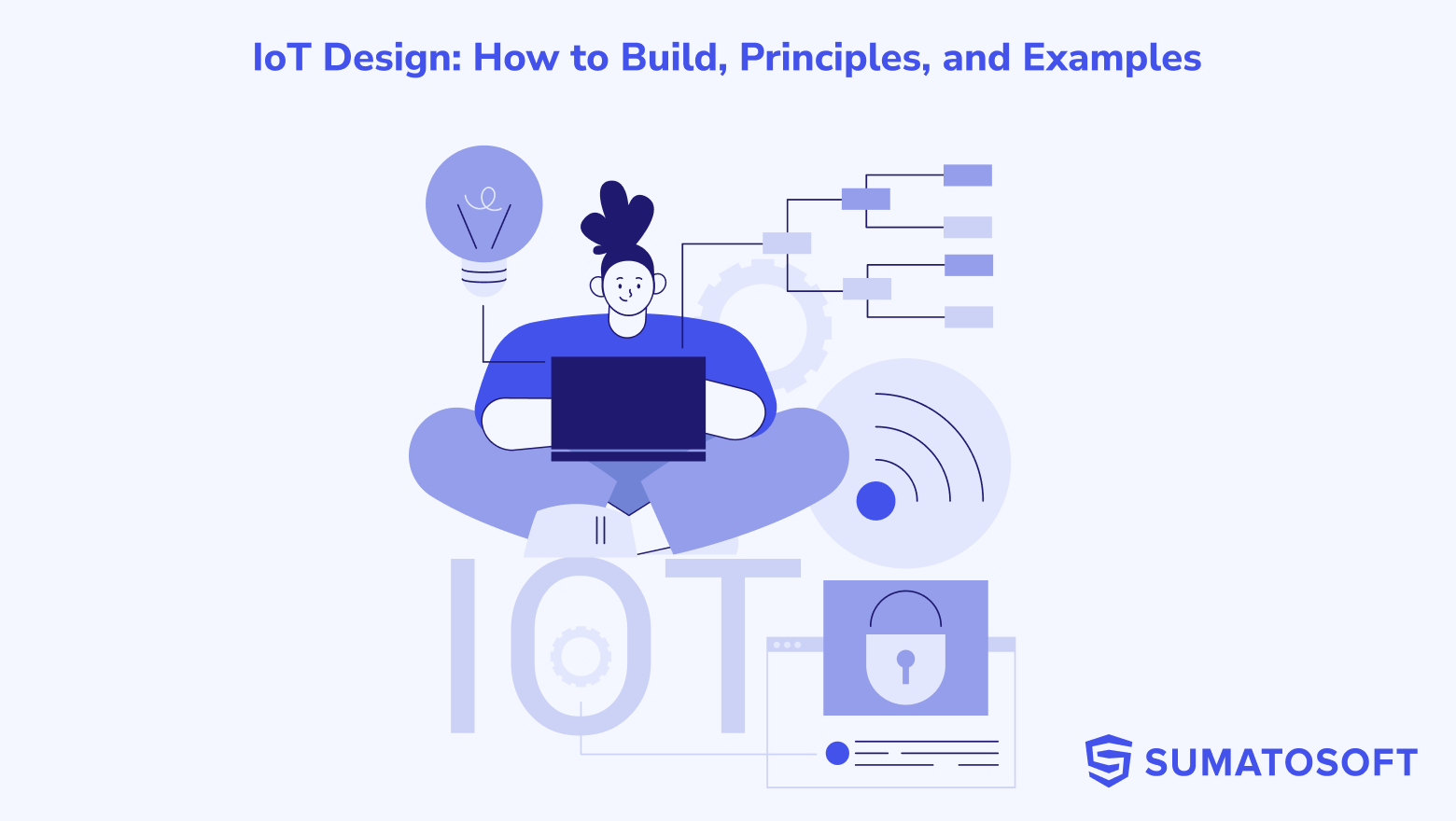How to: Build an Upscale Food Delivery App
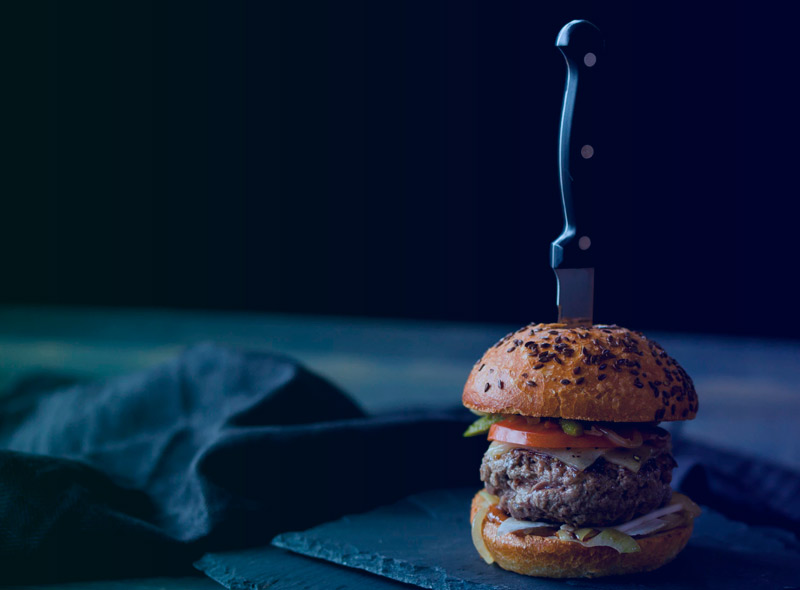

People from various generations today, especially young folks, are shifting their food priorities from eating out or cooking at home to food delivery services. Such an approach has a number of bonuses: when you do not have the necessary products or time for cooking or going out, you can get any dish from your favorite restaurants within a reasonably short period of time.
Just choose what you want, add it to your cart and if you want, pay online. Isn’t it amazing?
In Startup Idea Matrix by Eric Stromberg, such kind of product could take place in a vacant cell Cooking on Demand. We already know an on-demand service in another area – transportation – it is well-known Uber. However, Uber moved even further and introduced an on-demand food delivery service called UberEats. UberEats is one of the fastest-growing food delivery services, at least in the USA.
Building an app like UberEats means building bridges between restaurants and food lovers (or common people who just eat to live).
As a business idea, it is also beneficial. Owners of restaurants would be glad to delegate everything related to delivery to your service and focus on what they do best: making the food.
If you are attracted by the idea of on-demand delivery service as a startup and trying to find the best partner among Restaurant Web Design Companies, let’s consider the key moments you should pay attention to.
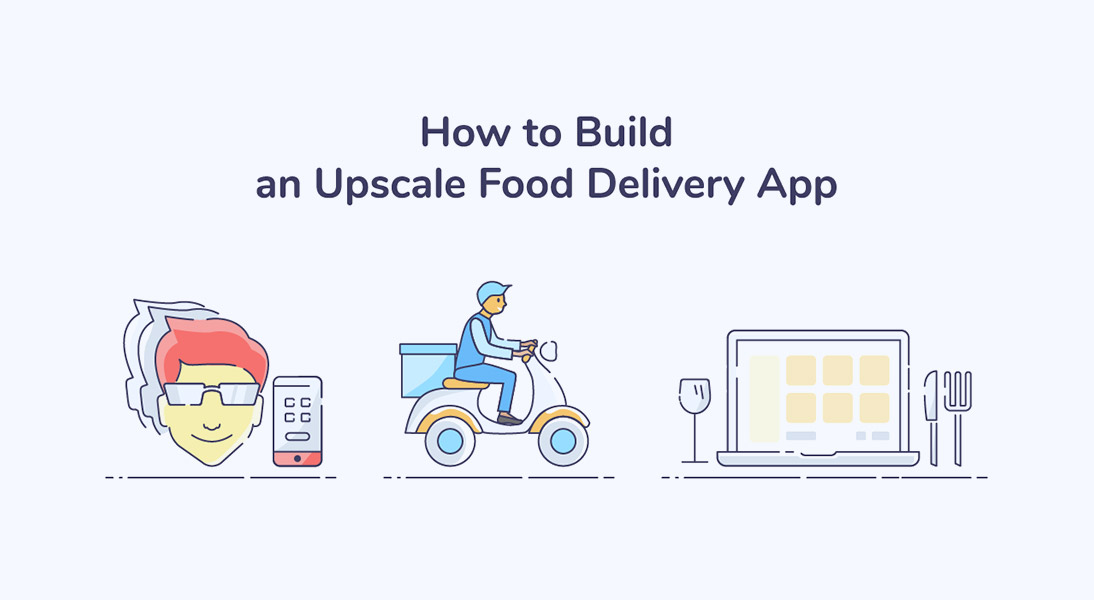
The Minimum Required Set of Features to Be Competitive in the Market
First of all, let’s decide on what the must-haves for your future on-demand delivery application are.
In a general way, to keep abreast with the market, you should take into account the following aspects:
- Quick ordering and delivery
- Fast and secure payments
- Seamless mobile user experience
- Customer loyalty program
- Geolocation choice
- Delivery tracking
- Feedback system
Now let’s go into detail and take a closer look at the features and modules you should include in an on-demand food delivery app.
Key On-Demand Delivery App Features for Customer Module

Information about all the restaurants listed: their menu (with photos) and prices.
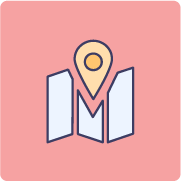
Geolocation: a feature that allows customers to select from nearby cafes and restaurants.

Registration: customers should be able to register in the system and get a personal account to further be able to quickly order from favorite restaurants and more.
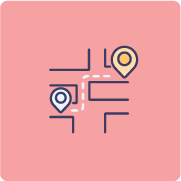
Live tracking: a feature that enables customers to track the status of their delivery through Google Maps.
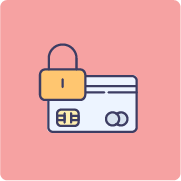
Online payments: customers should be able to register their cards (one or multiple) and pay for their delivery online. That’s why integration of the payment gateway is required along with PCI DSS compliance. The app should be absolutely secure for users.
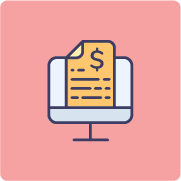
Automatic payments as an option: those customers who opt for online payments only should be provided with an opportunity to make it effortless. Add an automatic payment option so that money is deducted automatically after every order and the invoice is sent to a user’s email.
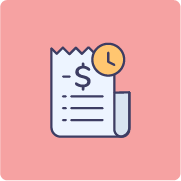
History: an option allowing customers to track the whole transactions history.
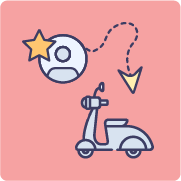
Customer feedback: the ability to provide feedback, write a review or rate a restaurant / delivery service.

Loyalty program: to stand out on the background of other similar apps, you need to develop a unique program aimed to reward your future loyal customers and engage them with discounts, coupons and other promotions.

Integration with social media: this will serve you well, as users will be able to log in via social networks and you will be able to learn more about your target audience. Customers will also eagerly share posts about food they are eating ordered via your app.
Key On-Demand Delivery App Features for Courier Module
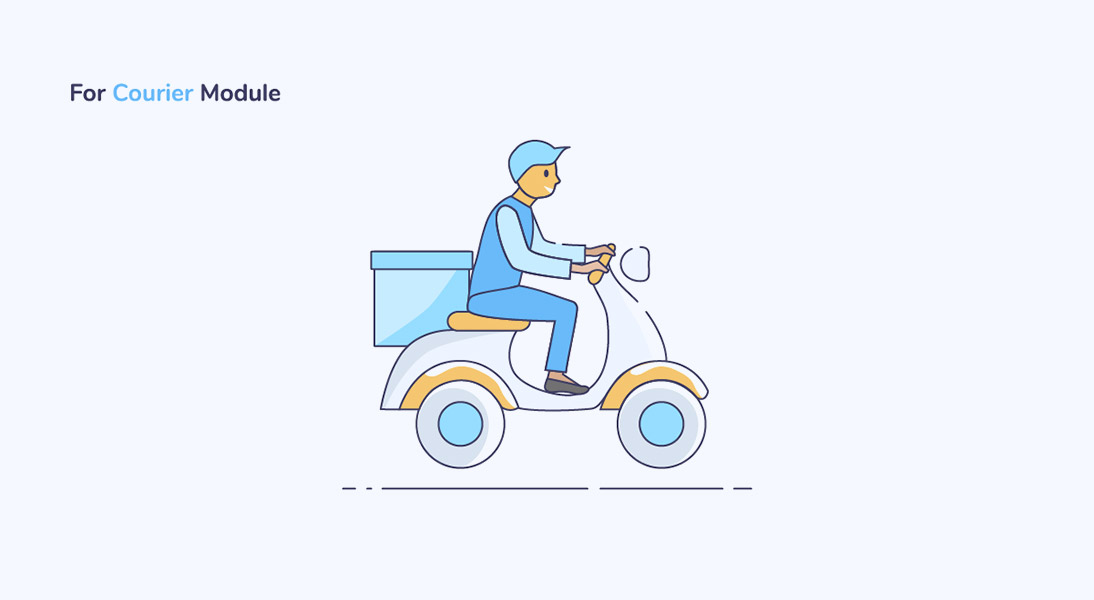
As you might understand, someone has to deliver food ordered from your app. Deliverymen also need functionality in your app tailored to their needs.
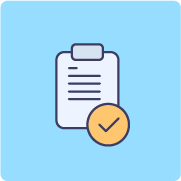
On-boarding platform: app’s module where deliverymen can register in the system and go through the verification process.
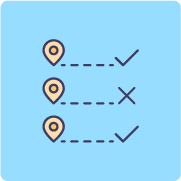
Orders: A module for delivery men that enables them to view orders, approve and disapprove them, see the client’s address and other necessary details. In addition, in this module couriers will see pick-up points—addresses of cafes and restaurants.
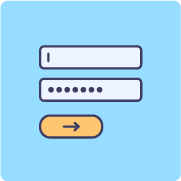
Personal account: All orders and earnings are displayed.
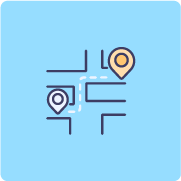
In-built GPS navigation

Functionality for notifying customers: Through this feature, deliverymen inform customers on the order’s status (approved, picked up, delivered).
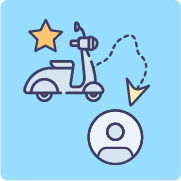
Feedback: Not only customers should have the ability to leave comments and rate—this works for deliverymen as well.
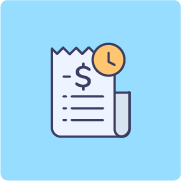
History: An option allowing couriers to track the whole history of orders, including cancelled ones.
Key On-Demand Delivery App Features for Administration Module
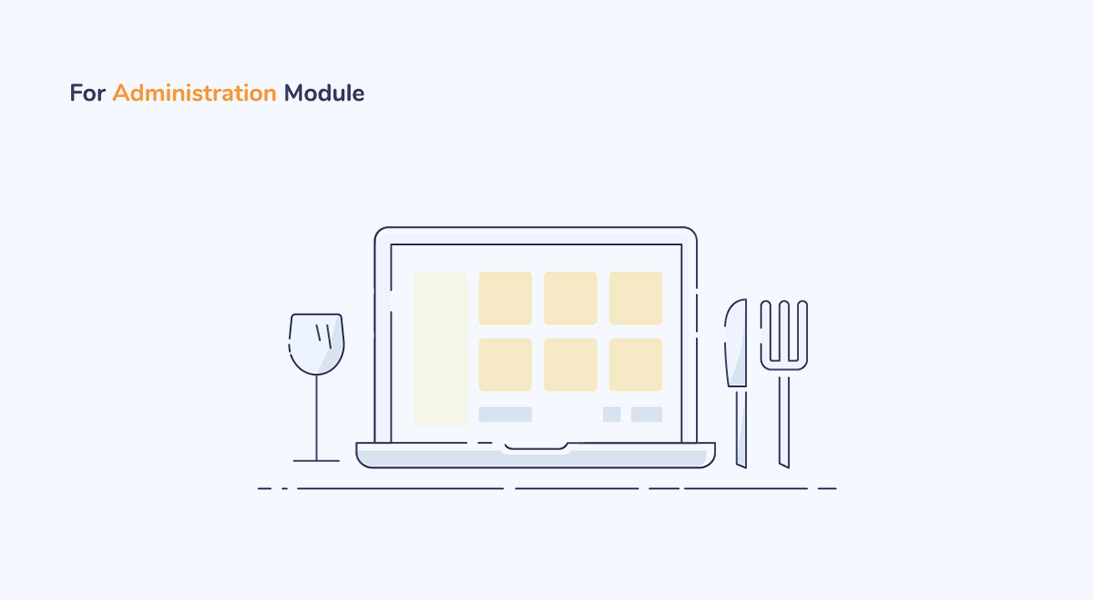
This is a web module that you and someone you will hire will use for managing all processes and getting a big picture.
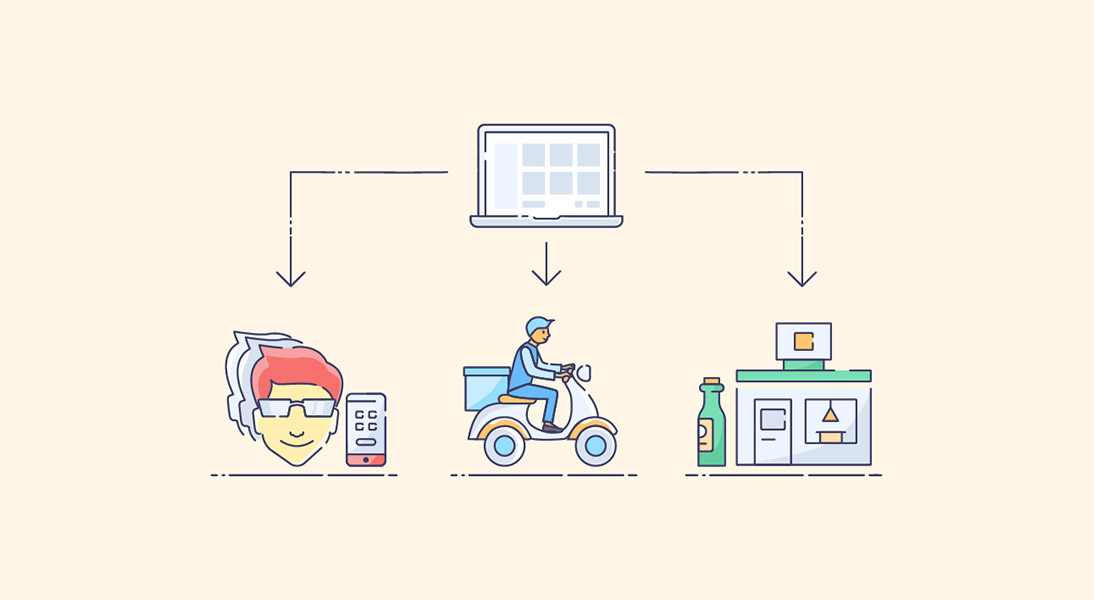
1. Dashboard with all profiles of customers, delivery men, the lists of restaurants and their pages.
Admin should be able to block any party in the system if some rules are violated.
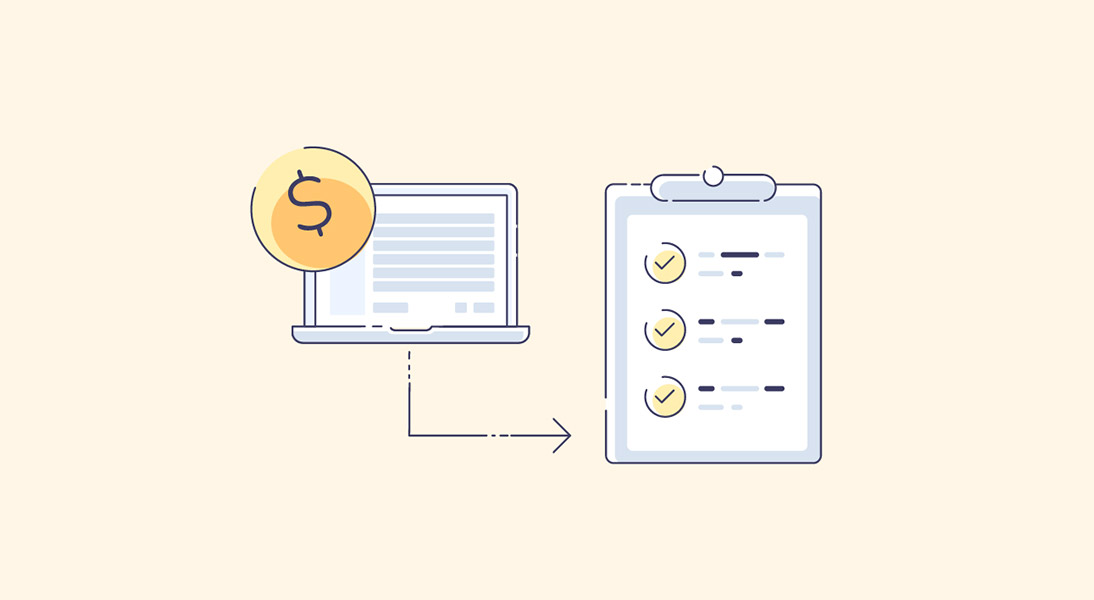
2. Accounting dashboard with information on all orders and payment transactions.
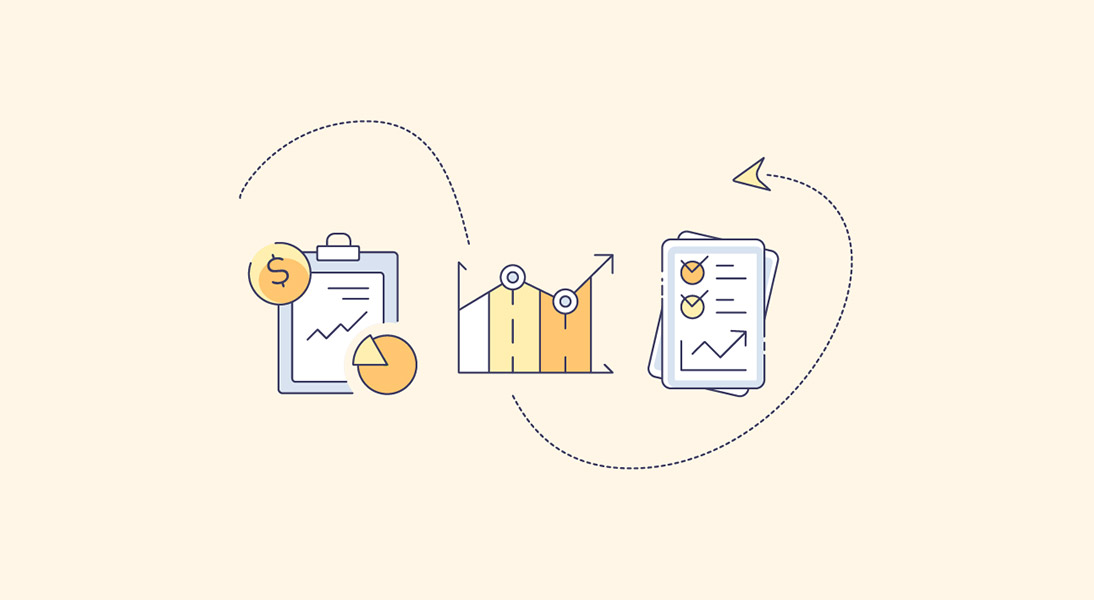
3. Advanced analytics and reports: this module integrates all kinds of business data that will provide you with valuable insights:
- placed orders
- how many of them are completed
- which restaurants are more popular
- in which areas your app is more popular
- peak hours
- the overall number of users, restaurants, and couriers
- your profit per month or year with relevant graphs.
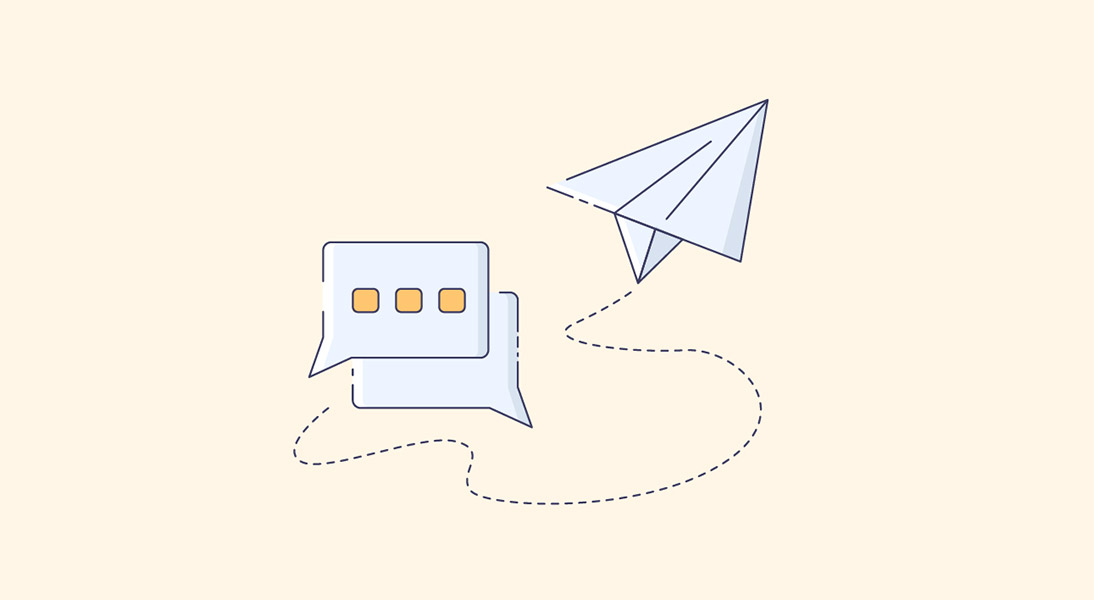
4. Client service module for real-time & email customer support and troubleshooting.
What You Should Take Care of to Build a Food Delivery App?
Now when you are fully aware of the key features your food ordering app should be endowed with, let’s move on to the steps you will take and things you should take into account.
1. Hire an experienced team of professionals.
Building a qualitative on-demand food delivery app is not an easy thing to do. You will need a number of processes done:
- Requirements gathering and specification preparing
- UX and UI design building prototypes
- MVP development
- Mobile app development
- Web application development (admin module)
- Quality assurance and testing.
There is a lot on your plate, isn’t it?
Leave it to the professionals.
Hire our experienced team with a strong background in mobile and web app development, save time & money and focus on your business.
2. Decide on the platform: whether you need an iOS or Android app, or both.
Cross-platform development can be a good option.
3. Opt for a plain and simple design without redundant features.
Pay special attention to user experience design.
4. Take care of online payments and PCI compliance.
5. Negotiate with restaurants, contract with delivery men, and make them stay with you for a long time.
6. Engage customers: find out where your target audience is (e.g.: social media) and tell them about your app.
7. Probably a priority-one point on the list: after launching an MVP gather and analyze feedback from customers.
This stage is crucial for learning if you are moving in the right direction, identifying weak spots, fixing mistakes, and improving everything you can before launch.
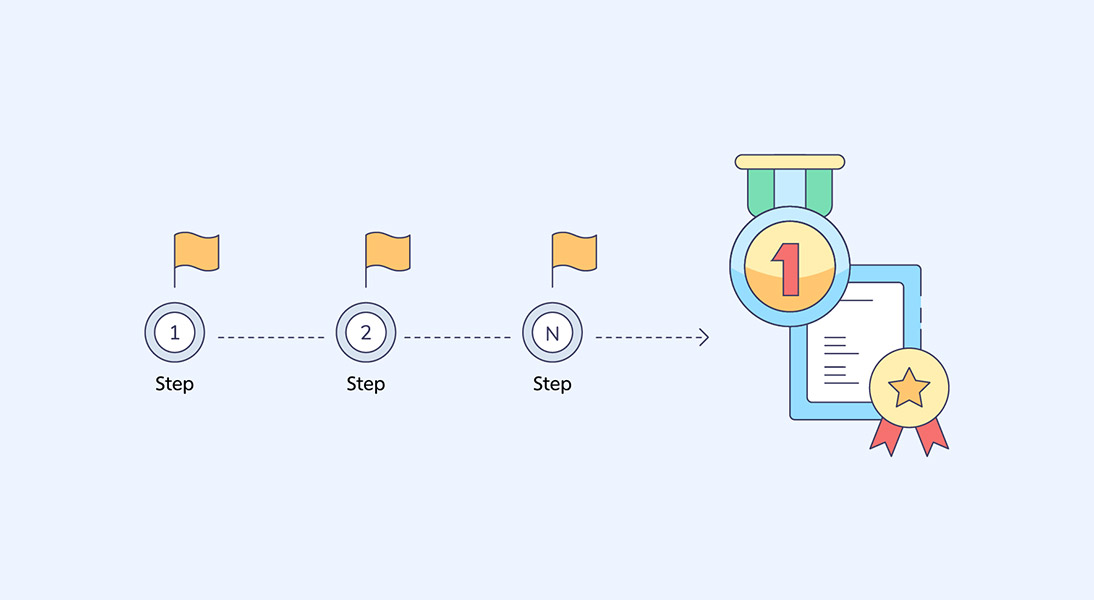
What’s next?
Launch your food delivery app, and publish it on GooglePlay or/and AppStore.
Promote your product, keep your eye on the ball, constantly gather customer feedback, and build strong partnerships with restaurants and delivery men.
Good luck!
Let’s start
If you have any questions, email us info@sumatosoft.com

